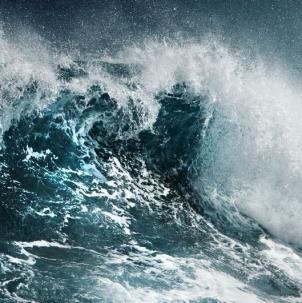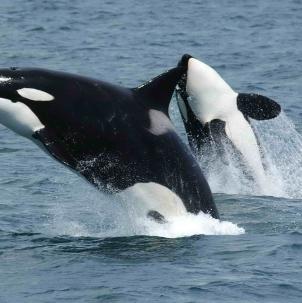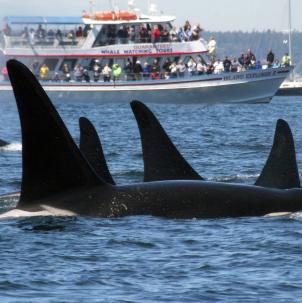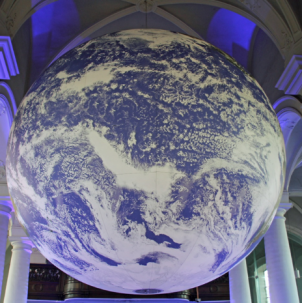brief voor de minister-president van de Faroe Islands
De beelden van de grindadráp is een groot deel van de mensen wel mee bekend inmiddels; stranden vol gedode dolfijnen die in een door bloed roodgekleurde baai liggen... Dat alles in naam van traditie. Wij vinden dat er nodig een eind aan moet komen en hebben om die reden een brief verstuurd naar de minister-president van de Faroe Islands en twee van de representatieven van het land in het Deense parlement (de Faroe Islands zijn een semi-autonoom deel van Denemarken). Ons voornaamste doel is te laten zien dat er vanuit alle hoeken nog steeds aandacht voor het onderwerp is en om internationaal dit onderwerp relevant te houden. Afgelopen jaar zijn er in totaal 2043 dolfijnen gedood en nog steeds blijven ze doorgaan met deze jacht. Deze dolfijnen verdienen bescherming en daarom ook onze aandacht. Aankomend jaar gaan we lespakketten speciaal voor de Faroe Islands samen stellen om op scholen educatie te geven over het belang van de oceaan, een gezond milieu en vooral willen we natuurlijk de intelligentste waterdieren in het licht zetten. Hiermee hopen we stukje bij beetje meer bewustzijn te creëren zodat uiteindelijk de dolfijnen in leven gehouden zullen worden.
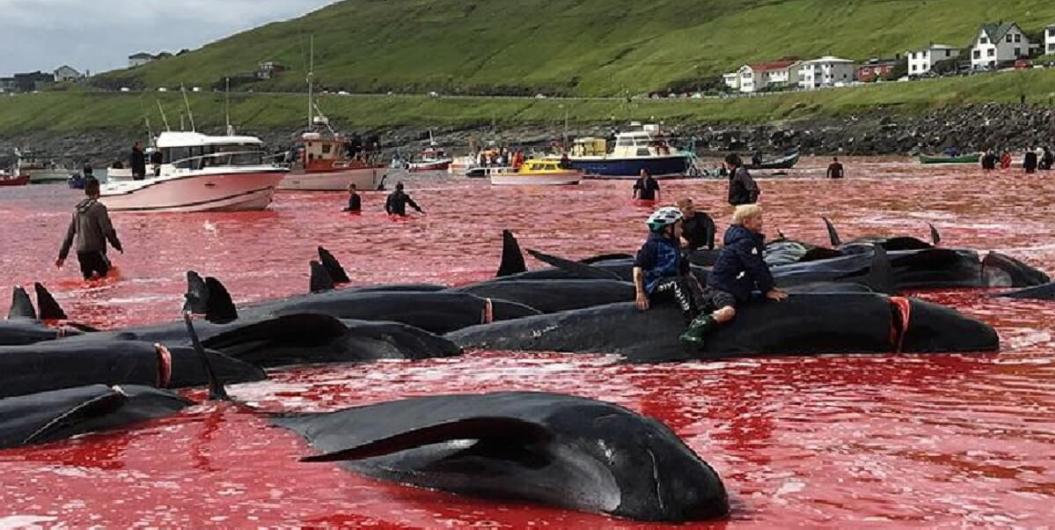
Dear Prime Minister á Steig Nielsen,
The Faroe Islands have a long standing tradition of annually killing cetaceans to provide food for their inhabitants. This tradition has risen from dire necessity in the past, as the islands were isolated from the mainland and food production on the lands itself was hard. However, in these days, it luckily cannot be labelled a “necessity” anymore, as international trade has increased, giving it the status of a local delicacy. But this is not all that has changed. Due to global pollution of the environment, cetacean meat has accumulated an enormous amount of toxins, making it a risk to further consume this. Also, the tradition has changed in terms of equipment, for the better, as spinal lances have proven to be more animal friendly, and swimsuits to protect the Faroes during the grindadráp and grindarakstur, but also for the worse, as with fast motorboats, more agile species like the white sided dolphins could also be driven to the bays, leading to last year’s mass killing of 1428 white sided Atlantic dolphins, on top of the already caught 615 pilot whales. Despite the abovementioned facts and the caused international outrage, the hunt is still on, which is why we are sending you this message. We urge you to take action to put an end to the grindadráp and take care of the environment.
To begin with, climate change is the biggest threat of our century, which makes it necessary to take every action we can to prevent it. These days, the ocean is thought to be responsible for over 70% of the oxygen we breathe on earth, due to the deforestation on land, which makes it vital we take good care of it with climate change already affecting ocean temperatures, primary productivity, and causing ocean deoxygenation and acidification [ii]. Cetacean preservation is indispensable in this. Big aquatic species make it possible for phytoplankton to grow and convert carbondioxyde into breathable oxygen[iii]. As phytoplankton also serves as the primary food source of low-trophic aquatic animals and baleen whales, it keeps the wheel spinning. When you take cetaceans out of the ring, our oxygen supply, as well as the abundance of aquatic animals in our ocean will decrease even faster.
Therefore, it would be wise to take into account the Precautionary Principle, which you will be well aware, (best described by the Rio Declaration on Environment and Development of 1992) states that “[w]here there are threats of serious or irreversible damage, lack of full scientific certainty shall not be used as a reason for postponing cost-effective measures to prevent environmental degradation.” There simply is too little scientific data of cetaceans to be able to measure their abundance correctly. Although the grindadráp has not resulted in notable changes in the abundance rates of the species, it cannot be said with certainty that the grindadráp is a sustainable practice. The IUCN Red List marks the long-finned pilot whales as “least concern”, but notes that the species remains data-poor. No conclusive scientific data has been available up to this day, making it a big guess what their abundance actually is, as these measurements have only been made in sampled areas and thus cannot be a reliable estimate to their entire population[iv].
We cannot predict how the species will develop in the future, with all the aforementioned threats these cetaceans face and the high probability of more future climate change related mass strandings[v]. Not only is cetacean meat unconsumable from a medical point of view due to the high bioaccumulation of PCB’s, Hg, Cd and MeHg[vi], also expressed by your own national health care[vii], the pilot whales and other cetacean species likely suffer from this toxicity themselves too[viii]. High bioaccumulation in cetaceans could hinder their ability to navigate and might affect their reproductive success, so it is absolutely impossible to be able to state that a practice of actively decreasing cetaceans is sustainable, as there are many more unprecedented threats these beings face these days.
We wish to issue that every action we can take to save these animals and directly and indirectly ourselves, is necessary. Bycatch, noise pollution, microplastics and PCB’s are a lot harder to fight than an anthropogenic event that directly decreases the population abundance of wild cetaceans, such as the grindadráp does. For this reason, we would encourage the Faroes to seriously consider whether they wish this specific part of their culture to be most striking in the future, as it most conscientiously will have participated in the increase of the environmental disasters of our age and the decrease of the cetacean population.
Last but not least we need to take in consideration the cetacean’s ability of sentience. Being one of the highest intelligent species on earth[ix], they have a very complex and developed nervous system. They also are a species with highly developed social and cultural bonds[x] [xi], expressed, by example, by how a whole pod of pilot whales would follow an injured individual, which has been exploited in the past by the Faroes as a means to drive a whole pilot whale pod into a bay; when one of them is injured, the rest of the pod sticks together with it because of their close bonds. We have not been able to measure the brain activity of cetaceans during a grindadráp, but if you imagine them being able to hear their mothers, brothers and children scream under water all through the at least fifteen minutes of the killing in the bay, on top of the exhausting and stressful multiple hour drive they have been through, it is easy to understand this hunt is far from humane to cetaceans.
Thus, in light of the continuous lack of data to measure absolute cetacean abundances, of our need to breathe and cetaceans playing a primary role in our oxygen supply, given that the Precautionary Principle in this critical time of climate change would be wise to follow, considering the amount of threats cetaceans face, given the toxicity of their meat to humans, rendering it an unwise practice to further consume it, and cetaceans being a fully sentient and social species, challenging the morality of the continuation of the grindadráp, we urge you to take action to prevent these cetaceans from being annually killed in the Faroe Islands.
With best regards,
Lieke Sephine Mellink
Dos Winkel
Signed by Erin Martellani - SPCA Montréal
Bopp, L., Resplandy, L., Orr, J., Doney, S., Dunne, J., Gehlen, M., Halloran, P., Heinze, C., Ilyina, T., Séférian, R., Tjiputra, J., Vichi, M., Multiple stressors of ocean ecosystems in the 21st century: Projections with CMIP5 models (2013).
[ii] Gruber, N., Boyd, P.W., Frölicher, T.L., Vogt, M., Biogeochemical extremes and compound events in the ocean (2021).
[iii] Lavery, T., Roudnew, B., Seymour, J., Mitchell, J., Smetacek, V., Nicol, S., Whales sustain fisheries: Blue whales stimulate primary production in the Southern Ocean (2014).
[iv] Voigt, C., A Precautionary Approach to the Whaling Convention: Will the International Court of Justice Challenge the Legality of ‘Scientific’ Whaling? (2012), par. 5.1 “Data acquisition”, p.574-575.
[v] Mannino, M., Talamo, S., Tagliacozzo, A. et al., Climate-driven environmental changes around 8,200 years ago favoured increases in cetacean strandings and Mediterranean hunter-gatherers exploited them (2015).
[vi] Zahir, F., Rizwi, S.J., Haq, S.K., Khan, R.H., Low dose mercury toxicity and human health (2005).
[vii] Weihe, P., Joensen, H.D. Dietary recommendations regarding pilot whale meat and blubber in the Faroe Islands (2012).
[viii] Gajdosechova, Z., Brownlow, A., Cottin, N.T., Fernandes, M., Read, F.L., Urgast, D.S., Raab, A., Feldmann, J., Krupp, E.M., Possible link between Hg and Cd accumulation in the brain of long-finned pilot whales (Globicephala melas) (2015).
[ix] Simmonds, M.P., Into the brain of whales (2006).
[x] Mann, J., Karniski, C., Diving beneath the surface: long-term studies of dolphins and whales (2017).
[xi] Mamzer, H.M., Ritual slaughter: The tradition of pilot whale hunting on the Faroe Islands (2021), par. “The pilot whale as a subject of human cultural practices”, p. 3.
Foto credit: Grindadrap 2018 Sea Shepherd UK
**
Sephine: Al jaren erger ik mij aan de beelden die je van de jaarlijkse grindadráp in de Faroe Islands voorbij ziet komen, waardoor ik dit jaar tot het idee kwam er actie voor te gaan ondernemen. Na met enkele mensen van internationale organisaties gesproken te hebben en veel leeswerk, heb ik een brief opgesteld die we verstuurd hebben naar de Faroese minister-president en twee representatieven van dit land die in het Deense parlement zitten (de Faroe Islands zijn een semi-autonoom deel van Denemarken). We willen hiermee vooral laten zien dat er nog altijd aandacht en vooral protest blijft tegen dit deel van hun traditie en hier aandacht voor blijven vragen internationaal. Met de enorme klimaatcrisis van deze tijd is het belangrijker dan ooit de oceaan gezond te houden en de grote waterdieren zoals dolfijnen spelen hier een cruciale rol in, zoals te lezen valt in de brief die we verstuurd hebben. Aankomend jaar wil ik verder gaan met deze campagne door lespakketten speciaal voor de Faroe Islands samen te stellen waarin het belang van de oceaan, een gezond milieu en intelligente dieren als dolfijnen onder de aandacht komen. Zo komt er hopelijk stukje bij beetje meer bewustzijn in de Faroe Islands voor het milieu en ik hoop natuurlijk dat ze uiteindelijk (hoe sneller hoe beter) helemaal zullen stoppen met deze gedateerde dolfijnenjacht.
